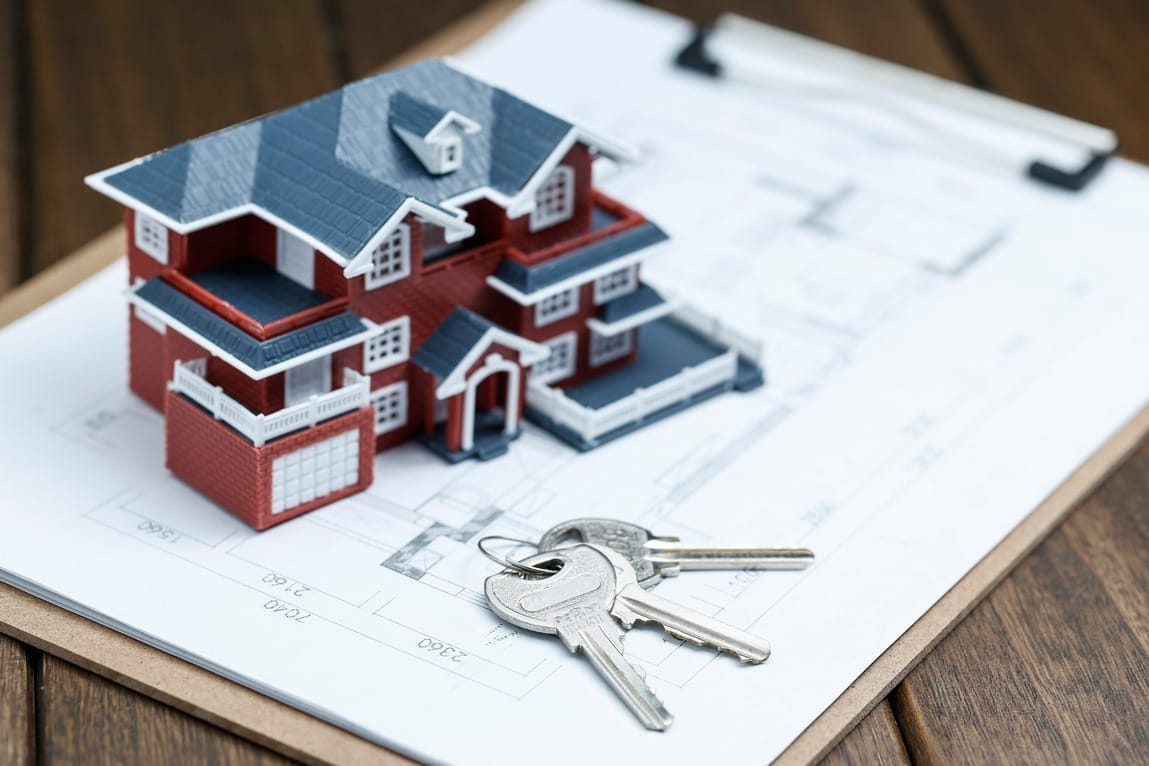If you’re venturing into the world of real estate development or custom home building, you might have encountered the term “construction to permanent loans.” But what exactly are these financial gems, and why might they be the key to unlocking your dream home or project? Let’s dive into the essentials of construction to permanent loans and uncover their potential benefits and complexities.

Defining Construction to Permanent Loans
A construction to permanent loan is a single loan that covers both the construction phase and the permanent mortgage phase. Think of it as a two-in-one deal that simplifies the financing process for building a new home. Instead of juggling separate loans for construction and mortgage, you have one loan with a streamlined process. It’s like having a Swiss Army knife in your financial toolkit.

How Construction to Permanent Loans Work
The Construction Phase
During the construction phase, the loan funds are used to pay for building costs. These funds are typically disbursed in stages, known as “draws,” as the construction progresses. You’ll make interest-only payments during this phase, which can be easier on your wallet.
Transition to Permanent Mortgage
Once construction is complete, the loan transitions into a permanent mortgage. At this point, you start making regular monthly payments that include both principal and interest. The transition is usually seamless, converting your temporary construction loan into a long-term mortgage.

Benefits of Construction to Permanent Loans
Streamlined Financing
One of the biggest perks is the streamlined financing process. With a construction to permanent loan, you avoid the hassle of applying for two separate loans and dealing with multiple closing processes. It’s like having your cake and eating it too – one loan, one closing, one happy homeowner.
Cost Efficiency
These loans can also be cost-effective. You save on closing costs since you only pay them once, and you may get better terms compared to having two separate loans. Plus, with the construction phase often being interest-only, you can save money while your home is being built.
Simplified Management
Managing one loan is simpler than handling two. You won’t have to worry about refinancing or securing additional funding once construction is complete. It’s less paperwork and fewer headaches, leaving you more time to enjoy watching your dream home come to life.
Drawbacks of Construction to Permanent Loans
Higher Interest Rates
In some cases, construction to permanent loans might come with higher interest rates compared to traditional mortgages. This is something to watch out for and discuss with your lender to ensure you’re getting a competitive rate.
Stringent Requirements
These loans often have stricter qualification requirements. Lenders may require a higher credit score or more extensive documentation to approve the loan. It’s essential to be prepared and meet these requirements to secure the financing you need.
Who Should Consider a Construction to Permanent Loan?
Construction to permanent loans are ideal for those looking to build a custom home or undertake significant renovations. If you’re working with a builder and want to simplify your financing, this type of loan could be a perfect fit. It’s especially useful if you want to avoid the hassle of two separate loans and streamline your home-building process.
BOTTOM LINE
Construction to permanent loans offer a convenient and efficient way to finance the construction of a new home or major renovations. By combining the construction and mortgage phases into one loan, you simplify the process, save on costs, and reduce the paperwork. While there are some drawbacks, such as potentially higher interest rates and stricter qualification requirements, the benefits often outweigh these challenges. If you’re planning to build or renovate, consider a construction to permanent loan to make your financing journey smoother and more manageable.
Frequently Asked Questions (FAQs)
What is the difference between a construction to permanent loan and a traditional mortgage?
A construction to permanent loan combines the construction and mortgage phases into one loan, simplifying the financing process. A traditional mortgage typically only covers the loan after construction is complete, requiring a separate construction loan.
Can I use a construction to permanent loan for renovations?
Yes, you can use a construction to permanent loan for major renovations or home improvements, provided the renovations are substantial enough to warrant this type of financing.
What are the typical qualification requirements for a construction to permanent loan?
Qualification requirements can vary, but lenders typically require a higher credit score, a detailed construction plan, and a larger down payment compared to traditional mortgages.
Are there any specific documentation needs for a construction to permanent loan?
Yes, you’ll need to provide documentation such as detailed construction plans, builder information, and a budget for the project, in addition to standard financial documents like income verification and credit reports.
How does the transition from construction to permanent mortgage work?
Once construction is complete, the loan automatically converts into a permanent mortgage. You’ll begin making regular payments that include both principal and interest, and the transition is usually managed by your lender.
How Long Is a Valid Pre-Approval for a Mortgage?
A mortgage pre-approval is typically valid for 60 to 90 days. This period allows you to shop for a home with confidence, knowing you have the financial backing. After this time, if you haven’t made a purchase, you may need to renew your pre-approval to ensure it remains current.
Does a Mortgage Pre-Approval Affect Your Credit?
Yes, obtaining a mortgage pre-approval does affect your credit. The process involves a hard inquiry into your credit report, which can cause a minor, temporary dip in your credit score. This is a normal part of the pre-approval process and generally has a minimal impact on your credit health.
How Long Does Pre-Approval Last?
Pre-approval generally lasts between 60 and 90 days. This timeframe allows you to search for a home while the pre-approval is valid. If the period expires before you find a property, you may need to reapply or update your financial information to renew your pre-approval.
Does Pre-Approval Mean Yes?
No, pre-approval does not guarantee that your mortgage application will be approved. It indicates that based on the information provided, you are likely to be approved for a mortgage, subject to verification of your financial status and other conditions. It is a preliminary step, not a final approval.
How Much Does Pre-Approval Cost?
Typically, obtaining a mortgage pre-approval is free of charge. Most lenders offer this service without a fee as part of the initial application process. However, be aware that other fees may apply later in the mortgage process, such as application or closing costs.
How Good Is a Pre-Approval For?
A pre-approval is good for 60 to 90 days, giving you a reasonable timeframe to find and make an offer on a home. It serves as a strong indication to sellers that you have the financial capability to follow through on a purchase. However, its validity can be affected by changes in your financial situation, so it’s essential to keep your information up-to-date.
People Also Ask
How Long Can You Hold a Preapproval?
A mortgage preapproval is typically valid for 60 to 90 days, depending on the lender’s policies. If it expires before you find a home, you may need to update your information to renew it.
What Is the Longest Pre-Approval?
The longest pre-approvals generally last around 120 days, though this varies by lender. Some lenders may offer extensions if your financial situation remains stable.
How Long Does Mortgage Approval Take?
Mortgage approval can take anywhere from a few days to several weeks, depending on the lender, your financial profile, and the complexity of the loan application. The approval process typically includes verification of income, assets, and credit.
How Long Is a Mortgage Offer Valid?
A mortgage offer, once issued, is typically valid for about 90 to 180 days, although this can vary by lender. If the offer expires, you may need to reapply or update your financial details.
Is a Pre-Approval a Final Approval?
No, a pre-approval is not a final approval. It indicates that a lender is willing to lend you a certain amount based on your financial profile, but final approval depends on a full underwriting process, including a property appraisal.
How Guaranteed Is a Pre-Approval?
A pre-approval is not a guarantee of final approval, as it depends on additional factors like the home’s appraisal and final underwriting checks. However, it’s a strong indicator of loan qualification.
How Important Is Preapproval?
Preapproval is crucial as it gives you a clear budget for home shopping, makes you a more attractive buyer to sellers, and signals to lenders that you’re a serious borrower. It also helps speed up the closing process once you’ve found a property.
How Long Can You Lock in a Preapproval Rate?
Rate locks for pre-approvals typically last from 30 to 60 days, but some lenders may offer rate locks up to 90 days. Longer rate locks may involve additional fees.
What Happens When Pre-Approval Expires?
When pre-approval expires, you’ll need to request a renewal from your lender. This may involve updating your financial information, such as recent pay stubs, tax returns, or credit checks.
What Is a Pre-Approval for a Mortgage?
A pre-approval for a mortgage is a conditional commitment from a lender stating how much they are willing to lend based on an initial review of your finances. It involves a credit check, income verification, and a preliminary look at your debt-to-income ratio.
Can You Borrow More Than Your Pre-Approval?
Technically, you can’t borrow more than your pre-approval amount unless you reapply and the lender agrees to increase it. You’ll need to demonstrate a stronger financial profile or increased income to qualify for a higher amount.
How Long Is a Valid Pre-Approval for a Mortgage?
A pre-approval is generally valid for 60 to 90 days, though some lenders may offer validity up to 120 days. After that, it needs to be renewed with updated financial information.
How Long Can You Extend a Pre-Approval?
You can often extend a pre-approval by 30 to 60 days, depending on the lender, though you may need to submit updated financial information or undergo another credit check.
What Happens When Pre-Approval Runs Out?
When a pre-approval runs out, you’ll need to reapply for a new one. This may involve resubmitting financial documents and undergoing another credit review, depending on the lender’s requirements.
How Long Does It Take for a Mortgage to Be Approved?
Mortgage approval can take from one week to several weeks, depending on your lender, the completeness of your application, and any required documentation. A straightforward application may move faster than one with complex income sources or credit issues.
What Does It Mean When a Loan Is Pre-Approved?
When a loan is pre-approved, it means a lender has assessed your financial situation and is conditionally willing to lend you a specified amount, pending full underwriting and property appraisal.
How Does a Pre-Approval Affect Your Credit?
A mortgage pre-approval involves a hard inquiry on your credit report, which may temporarily lower your credit score by a few points. Multiple inquiries within a short period typically count as one inquiry for credit scoring purposes.
How Long Is Pre-Approval Valid?
Pre-approval is typically valid for 60 to 90 days, though this varies by lender. You may need to update your information to renew it if you don’t find a property within this timeframe.
Can a Pre-Approval Be Denied?
Yes, a pre-approval can be denied if there are changes to your financial situation, credit score, or if new information arises during the final underwriting process. Changes in debt or employment may also impact the decision.
Is Mortgage Pre-Approval a Hard Inquiry?
Yes, mortgage pre-approval usually involves a hard inquiry, which appears on your credit report and may slightly lower your credit score. However, mortgage-related inquiries within a short period are often combined into a single inquiry.
Do You Need Mortgage Preapproval?
While not mandatory, mortgage preapproval is highly recommended. It gives you a realistic home-buying budget, increases your negotiating power with sellers, and speeds up the closing process once you find a home.








